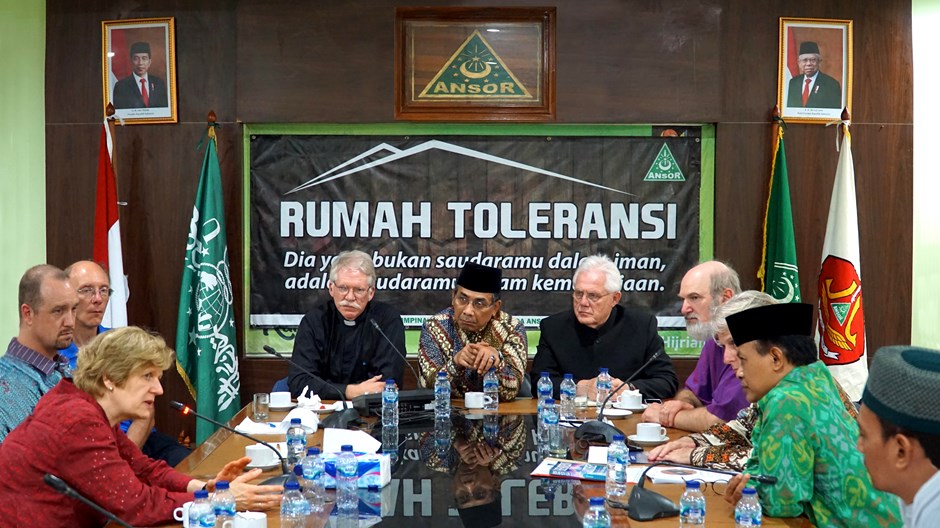Last November, when the General Assembly of the World Evangelical Alliance (WEA) took Sunday off for worship and relaxation near Jakarta, Indonesia, a group of top leaders did something different. We got in a van and traveled to the offices of an Indonesian Muslim youth organization.
There we spent several hours in stimulating conversation with a group of Muslim intellectuals. Afterwards, at dinner, we were joined by Indonesia’s ambassador to the United States.
Why would WEA leaders pay so much attention to a group of Indonesian Muslims? And why would our hosts and even a high government official be so interested in welcoming us? Two reasons.
First, both we and our Muslim counterparts are idealists. We share a vision of a world in which people are free to choose their religious belief without risking their lives.
And second, we think a high-level alliance between one of the world’s largest evangelical organizations and one of the world’s largest Muslim organizations can uniquely move humanity in that direction.
Not just any Muslims
Our conversation partners were not just any Muslims. The most prominent figure among our hosts was Yahya Cholil Staquf (Pak Yahya), who served 20 years ago as press secretary to Indonesian President Abdurrahman Wahid. Pak Yahya is now the general secretary of Nahdlatul Ulama (NU), a 94-year-old Muslim organization that claims 90 million adherents worldwide.
NU formed as a reaction to the rising influence of Wahhabism, the more puritanical version of Islam that had come to dominate what is now Saudi Arabia. Many Indonesian Islamic leaders received training in Saudi territory, so Wahhabi repression and persecution of more broad-minded Muslims had a direct effect on them.
Over decades of seeking to counter Islamic extremism in Indonesia, NU leaders realized that to achieve their goals, they had to directly challenge the radical versions of Arab Islam. As Pak Yahya puts it, “Whenever we defeat the threat in Indonesia, they get outside reinforcements.
Over the past five years, NU leaders have crafted a series of documents of great intellectual depth that challenge, from a well-established Muslim perspective, the tenets of Islamic extremism. They contend that from its founding up to the 15th century, Islam evolved to deal with constantly shifting cultural circumstances through ijtihad, or independent legal reasoning, but that the faith then became ossified and resistant to change.
This is why, as their 2018 Nusantara Manifesto states, “A wide discrepancy now exists between the structure of Islamic orthodoxy and the context of Muslims’ actual (lived) reality.” Specifically, Islamists in many countries are trying to restore a caliphate, exterminate “infidels”—including followers of less extreme versions of Islam—and impose sharia law on a globalized, pluralistic world.
In contrast, NU leaders’ vision of “Humanitarian Islam” proposes a clear distinction between eternal or universal religious norms and contingent, temporary norms. In their view, the obligation to show universal love and compassion is unchanging; the obligation to compel obedience to Islam by military force or to execute apostates is contingent and no longer relevant to the modern context. (It’s a parallel to Christians’ belief that the Ten Commandments are universal but Old Testament penal law no longer applies.)
If you’ve never heard of NU, you should read Christianity Today more closely. This magazine reported on Pak Yahya’s meeting with US Vice President Mike Pence in May 2018, after which Pence promptly tweeted a photo and the message, “Trump’s admin stands with NU in its fight for religious freedom and against jihad.”

No comments:
Post a Comment